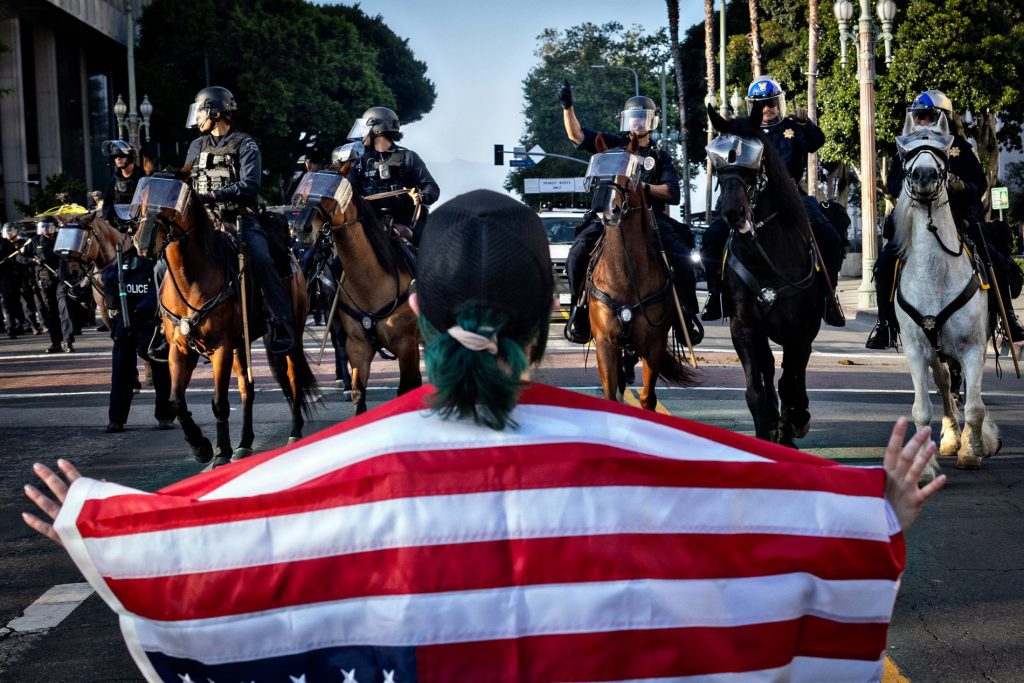As the Trump administration continues its aggressive immigration policies, concerns are mounting over the potential misuse of law enforcement powers in migrant arrests. Lawyers and immigrant advocates argue that local authorities, to meet the administration’s goal of one million deportations in a single year, are engaging in racial profiling, targeting individuals who have legal status in the United States. Critics warn that such actions not only violate constitutional rights but also create fear and uncertainty for immigrant communities nationwide.
One striking example involves 23-year-old college student Helmuth Beteta. While riding his bike, Beteta was unexpectedly detained by local authorities. Family members and attorneys claim this incident is emblematic of a larger pattern in which law-abiding immigrants are caught up in enforcement operations designed to meet federal deportation quotas. “Helmuth’s case is a clear example of constitutional rights being ignored,” said one attorney. Loved ones expressed shock and frustration, noting that Beteta has always complied with the law and has a legitimate status to live and study in the United States.
Legal experts argue that these enforcement measures are disproportionately affecting people of color. According to immigration rights advocates, racial profiling is being used as a tool to identify targets for arrest, rather than relying on objective evidence or legal justification. This practice raises serious questions about the fairness and legality of the current approach to immigration enforcement. Critics say it fosters distrust between immigrant communities and local law enforcement, making it more difficult for authorities to engage with these communities safely and effectively.
The lawsuit highlighting Beteta’s case is part of a broader wave of legal challenges brought by individuals who believe their constitutional protections are being violated. Immigration attorneys point out that detaining someone without cause, especially when they have legal status, violates fundamental due process rights guaranteed under the U.S. Constitution. They argue that federal mandates for mass deportations are pressuring local authorities to act aggressively, sometimes at the expense of justice and fairness.
Advocates also stress the psychological and social impact of such enforcement practices. Families and communities report heightened anxiety, with children and students living in fear that a family member or friend could be detained at any time. This climate of fear can have long-term effects on mental health, educational attainment, and community cohesion. As more cases like Beteta’s emerge, public attention is shifting toward the need for safeguards that protect lawful residents from unjust arrests.
The Trump administration has consistently emphasized its commitment to strict immigration enforcement, framing these measures as necessary for national security and the rule of law. However, critics argue that the focus on quotas and deportation numbers can encourage overreach by local authorities, disproportionately affecting those with limited power to defend themselves. Lawsuits like the one citing Beteta’s experience serve as a crucial check on the system, reminding officials that immigration enforcement must respect constitutional protections and human rights.
Immigration advocates are calling for greater transparency and accountability in enforcement operations. They urge local authorities to ensure that arrests are based on verified legal violations rather than assumptions about race, ethnicity, or immigration status. As legal proceedings unfold, Beteta’s case may become a key example of how mass deportation mandates intersect with civil rights, potentially shaping future policy and enforcement practices.
Experts also recommend that immigrant communities remain informed about their rights, including the right to remain silent and to seek legal counsel if detained. Organizations supporting immigrants stress that public awareness, legal advocacy, and community solidarity are essential to preventing unlawful detentions and protecting the constitutional rights of all residents.
With increasing scrutiny on migrant arrests and rising public concern over racial profiling, the Trump administration’s immigration policies are likely to face continued legal and societal challenges. Cases like Helmuth Beteta’s not only highlight the personal toll of aggressive enforcement but also raise fundamental questions about fairness, justice, and equality in the United States immigration system.

